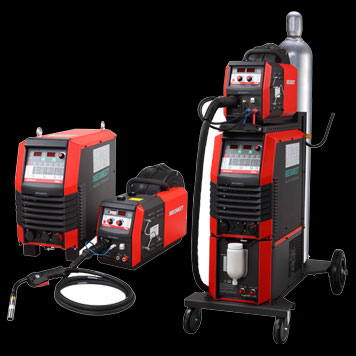Setting up a workshop—whether for professional fabrication or personal DIY projects—requires choosing the right welding machine. With so many options available in the market, it can feel overwhelming to decide which model suits your needs. The right choice will depend on your budget, the materials you work with, and the level of precision you require. This guide will walk you through the essentials of selecting the best welding machine for your workshop.
1. Understand Your Welding Needs
Before investing in a welding machine, consider:
- Type of work: Are you repairing automotive parts, fabricating heavy structures, or handling small household projects?
- Materials: Different welding processes work better with steel, stainless steel, aluminum, or thin sheet metals.
- Frequency of use: Occasional users may not need a high-powered, industrial-grade welder, while professionals should opt for durable, heavy-duty machines.

2. Know the Main Types of Welding Machines
MIG Welding Machines (Metal Inert Gas)
- Best for: Beginners and intermediate welders.
- Advantages: Easy to learn, fast, versatile, and works well on thin to medium-thick metals.
- Limitations: Not ideal for outdoor windy conditions without shielding gas.
TIG Welding Machines (Tungsten Inert Gas)
- Best for: High-precision projects and professional welders.
- Advantages: Produces clean, strong, and high-quality welds on stainless steel and aluminum.
- Limitations: Slower process, requires more skill, and machines tend to be costlier.
Stick Welding Machines (SMAW)
- Best for: Heavy-duty and outdoor jobs.
- Advantages: Affordable, effective on rusty/dirty metals, portable, and reliable.
- Limitations: Less precise and more spatter compared to MIG/TIG.
Multi-Process Welding Machines
- Best for: Workshops handling a variety of welding jobs.
- Advantages: Combines MIG, TIG, and Stick in one machine, saving space and cost.
- Limitations: Typically more expensive upfront.
3. Consider Power Requirements
- Input Power: Welding machines run on either 110V or 220V (some support dual-voltage). Check your workshop’s power supply.
- Output Power: Match the machine’s amperage range with the thickness of materials you plan to weld.
4. Portability & Size
If your work requires mobility, opt for a lightweight inverter-based welder rather than a bulky transformer-based one. For fixed workshop setups, a heavier, more powerful machine may be better.
5. Safety Features & Accessories
Look for:
- Thermal overload protection
- Voltage fluctuation control
- Cooling systems
- Availability of compatible helmets, gloves, and safety gear
6. Budget vs. Quality
While price is an important factor, prioritize reliability and durability. A cheap welder may save money initially but could lead to frequent repairs or poor-quality welds. Brands with good after-sales support are often worth the investment.
Final Thoughts
Choosing the right welding machine is about balancing your needs, skill level, and budget. Beginners may prefer a MIG welder for its ease of use, while professionals may invest in TIG for precision. Stick welders remain the go-to for rugged outdoor jobs, and multi-process machines offer flexibility.
